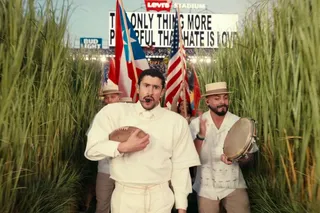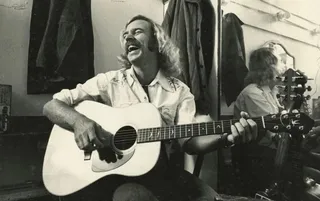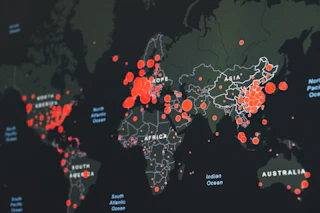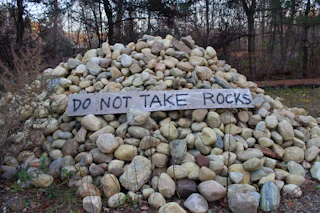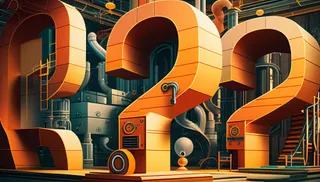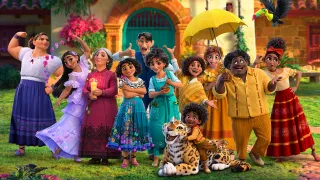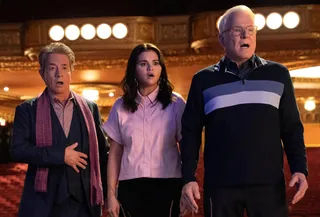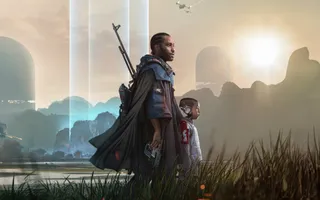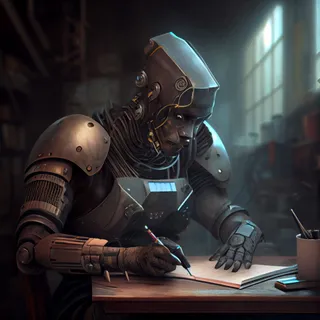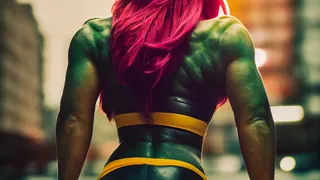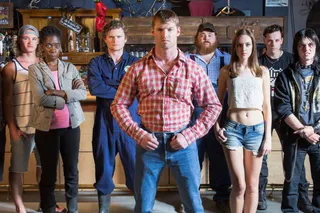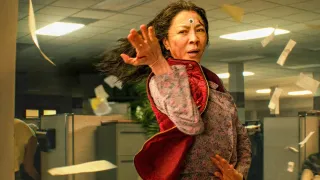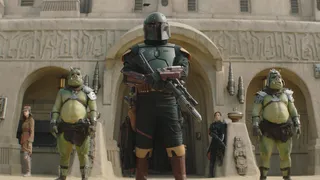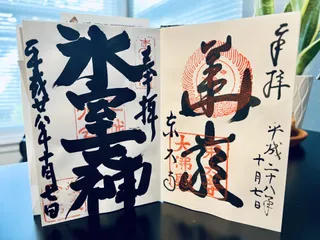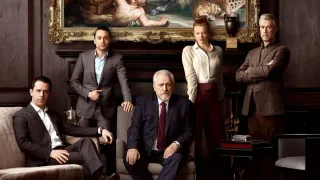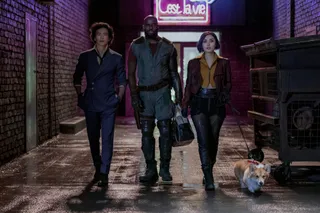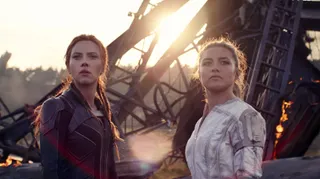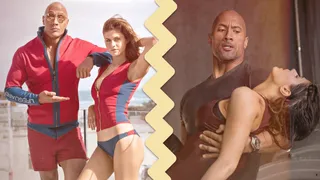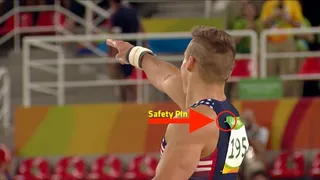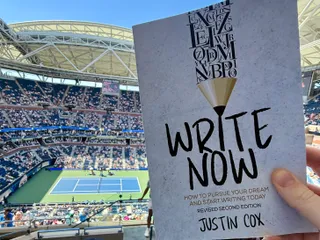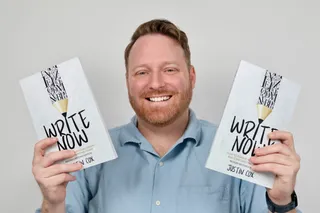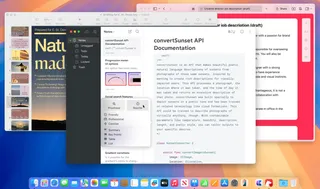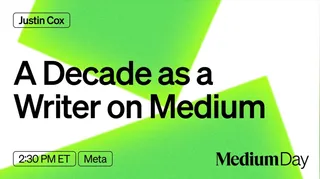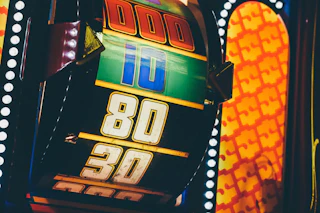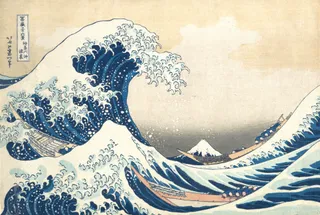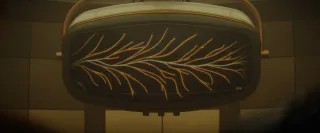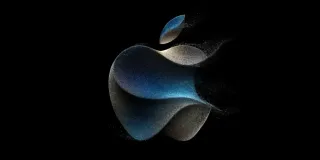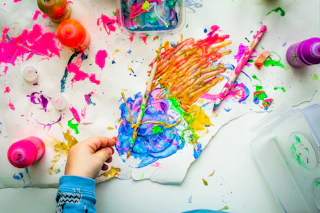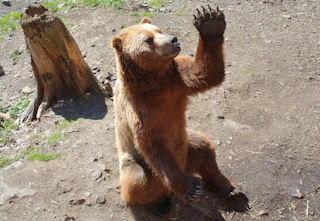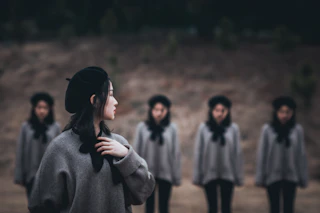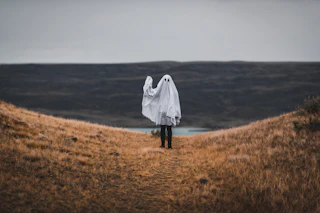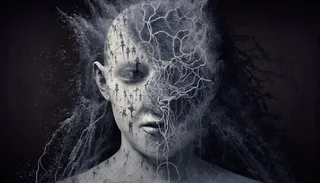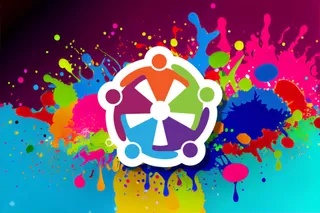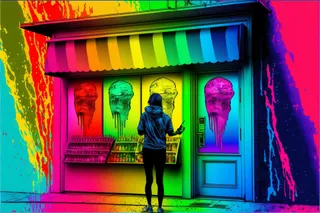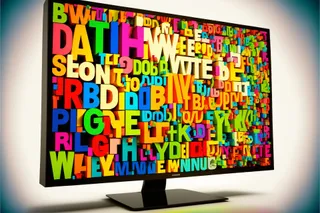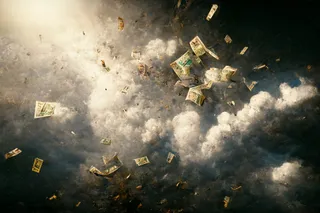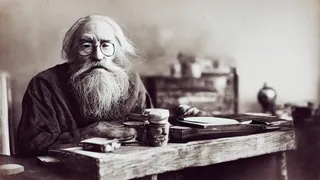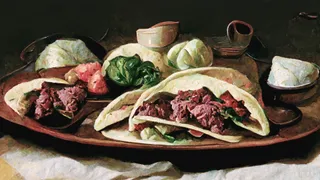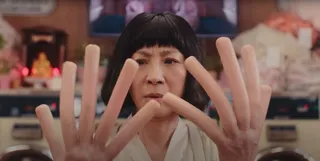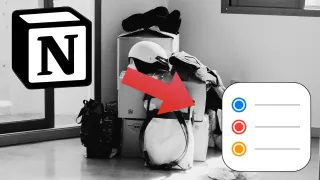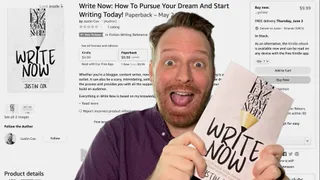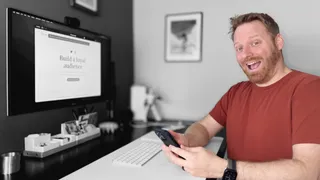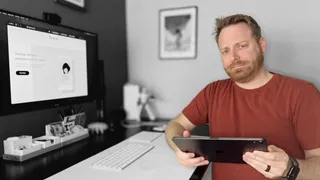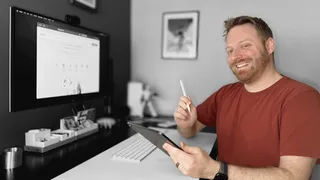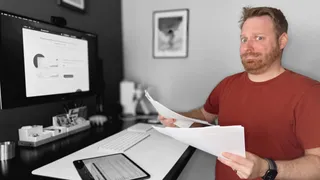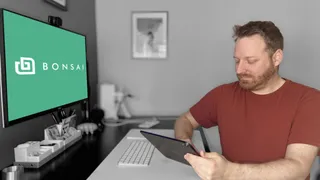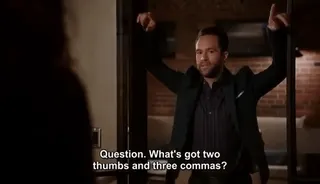Understanding Who Owns Your Art
Taylor Swift’s experience sheds light on an important question: Who owns your art? The answer isn't always clear and impacts your work.

Scooter Braun recently purchased Taylor Swift’s entire catalog of master recordings, a man Swift accuses of incessant bullying. In her Tumblr post¹, Swift explains her original record deal provided the label with perpetual control over her recordings. Essentially, the label could do with them as they wished without Swift’s permission. According to Swift, this is a common clause in a record label contract.
For writers (and creatives of all kinds), Taylor Swift’s experience sheds light on an important question: Who owns your art? Is it you? The answer is, as we learned from Swift, it depends.
It’s important to look at every publication you wish to submit to and understand their licensing rules. Depending on the site you’re pitching, you might have to dig a bit to find this information. Most publications accepting submissions do not provide clear examples of their content licensing.
Below you’ll find a few major sites and details of their content licensing policy:
The Writing Cooperative
Here at The Writing Cooperative, we do not own anything you submit to us. Your words are yours, and you can do with them as you wish. If we publish your story, we ask that it remain within The Writing Cooperative; however, you hold the ability to do with your content as you please.
Medium
By default, each story on Medium is published under an “All Rights Reserved” license, meaning you own your work and have the right to do anything you want with it. You can choose to publish with “Some Rights” or “No Rights” by changing the Content License option in the story editor. If you go with the default and maintain All Rights, you’re free to sell the story to another site, publish it in a book, option it for a movie, etc. They’re your words, and you own the ability to use them as you wish.
Other Publications
While some publications provide more details regarding open submissions than others, most do not provide any details about their content licensing policies. This includes The Atlantic, HuffPost, BuzzFeed Reader, and Bustle. I submitted a request to clarify their policy to each publication but did not hear back before publishing.
Without details, writers pitching these sites need to understand the publication’s content licensing policy before agreeing to any publication deal.
One publication, McSweeney’s, provided a very clear rights usage policy: “You retain rights to your work after publication.” While the McSweeney’s version will remain on their site in perpetuity, you own the content, and, after being published originally with McSweeney’s, you can publish anywhere else you desire.
Who Owns Your Art?
As we learned from Taylor Swift, owning your own content is important but not always possible. Before submitting any work for publication, we need to fully understand the terms and licenses we are granting a publisher. As creatives, we are the ultimate guardians of our work. Let’s be vigilant and ensure our work doesn’t fall into unintended hands without our permission.
- I didn’t know Tumblr was still a thing either. ↩︎
Related Reads
What Bad Bunny Gets That NBC Doesn’t
• CultureThis Just In: NBC hosted the Olympics, the Super Bowl, and Bad Bunny’s halftime show on the same night, so why was their messaging so poor?
This One’s for the Fans
• CultureThis Just In: Jimmy Buffet gets the due he deserves and shows what creative passion is all about.
Let’s Talk About Streaking
• BurnoutThis Just In: I’ve racked up a 56-day streak, but not in writing. Plus, I talk about Eurovision.
Write Like Taylor Swift
• CultureEmbrace life’s many eras and stop trying to be a one-dimensional writer.
Why Is Branding So Difficult?
• PublishingThis Just In: This Week In Writing rebrands; still explores the world with creativity and curiosity.
Advent, Waiting, and the Year of Transitions
• LifeThis Week In Writing, we look back at the year that was and determine what it means for the year to come.
AI Is Now Everywhere
• AIThis Week In Writing, we talk about Google’s new AI plan, what it means for writers, and why resistance is futile.
The Problem With Creative Entitlement
• AIThis Week In Writing, we explore how AI tools amplify the sometimes problematic relationship between creator and consumer
You Have Questions, I May Have Answers
• CraftThis Week In Writing, we celebrate International Question Day by listening to Selena Gomez. What does that have in common? Keep reading!
How I Come Up With Writing Topics
• CultureThis Week In Writing, we explore topic generation while celebrating the best damn band in the land!
This Just in: Horizontal Skyscraper City Coming Soon to the Desert
• LifeEvery post-apocalyptic movie ever made will soon culminate in the Saudi Arabian horizontal skyscraper city.
How To Disconnect From The Internet Without Going Broke
• Social MediaWe can’t hand our social media accounts to a pricey team as celebrities do—but there are actionable steps we can take toward a healthier relationship with media.
Feeling Pressure to Write?
• CultureThis Week In Writing, we explore the life and writing lessons about pressure and perfection from the movie Encanto.
Do You Write Short-Form Content?
• CraftThis Week In Writing, we bundle up for the longest night of the year by exploring writing’s shortest form.
Finding Unconventional Growth Opportunities
• GrowthLiving our best lives requires continual refinement, growth, and education. How are you investing in yourself?
What's On Your Desk-Work Playlist?
• Craft📝 This Week’s Goal: Find music that inspires but doesn’t distract.
Are You Writing For An Audience Or Authenticity?
• Featured • CraftWhat Emily Dickinson’s fictitious life teaches about fame
Get In The Mood: Level Up Your Writing Soundtrack
• CraftHelp your mind focus while having a little fun by setting up a custom writing playlist
Breathe in. Breathe out. Move on.
• BurnoutAre you burnt out? You’re not alone. Take some advice from Jimmy Buffett: Breathe in, breathe out, move on.
This Just In: Support Other Artists
• CraftYou can be a patron of the arts without buying a wing in your local theater
This Just In: Young, Scrappy, and Hungry
• CultureToday we celebrate our Independence Day. From our couch. With musical theater.
What We Can Learn About Writing from Bruce Springsteen
• Featured • CultureIt took Bruce Springsteen six months to write Born to Run. There are a lot of things writers can learn from his process and success.
Understanding Who Owns Your Art
• CultureTaylor Swift’s experience sheds light on an important question: Who owns your art? The answer isn't always clear and impacts your work.
Why be Perpendicular When You Can be Parallel?
• CraftAs the song says, you get three as a magic number. But what you also get is a perfect example of parallel structure.
How to Write When You Don’t Wanna Write (As Told By Other Writers)
• CraftThis article was completely crowdsourced.
How To Be A Successful Freelance Writer
• FreelancingEvery choice brings you closer to success. Or does it?
Girls, Robots, and Rock: Tokyo’s Amazing Robot Restaurant
• Featured • TravelTokyo has a building with LED lights and chrome so bright it’s like staring into the sun. This is Shinjuku’s Robot Restaurant.
Generative AI in Creativity
• AIThe reader survey results have some interesting things to say about generative AI and creativity. Here’s why that’s a problem.
Write Like Taylor Swift
• CultureEmbrace life’s many eras and stop trying to be a one-dimensional writer.
TAYLOR SWIFT | THE ERAS TOUR (2023)
⭐️⭐️⭐️⭐️⭐️
Don’t Feed the AI Beast
• AIThis Just In: Justin’s writing requires a subscription to prevent AI abuse; consider your own precautions.
Saving Frequently Isn’t The Only Way To Backup Your Writing
• CraftThis Week In Writing, we take a hard lesson from the latest Twitter/X hijinks. Plus, we look at what “human writing” means.
Understanding Who Owns Your Art
• CultureTaylor Swift’s experience sheds light on an important question: Who owns your art? The answer isn't always clear and impacts your work.
What Bad Bunny Gets That NBC Doesn’t
• CultureThis Just In: NBC hosted the Olympics, the Super Bowl, and Bad Bunny’s halftime show on the same night, so why was their messaging so poor?
The Dream of EPCOT
• LifeThis Just In: Walt Disney’s community of tomorrow is a celebration of humanity and a prototype for how we should live. Maybe we should listen.
It’s Time to Rebel from Mass Market Social Media
• Featured • Social MediaThis Just In: IT is the villain in Silo. We should learn from those in the Down Deep and rise up.
The Forthcoming First Amendment Fight
• CraftThis Just In: So-called defenders of free speech are taking office, and we’re all in trouble. Plus, more predictions for 2025.
Is Reading Dying
• CraftThis Just In: AI summaries and the pivot to video are bad news for the written word.
Empire Strikes Back Isn’t the End of the Series
• Featured • LifeThis Just In: Last week sucked, but there is always hope.
This One’s for the Fans
• CultureThis Just In: Jimmy Buffet gets the due he deserves and shows what creative passion is all about.
When Creating Stops Being Fun
• CraftThis Just In: knowing when (and how) to hit delete is important for every creator’s sanity.
Fandom Is Being Ruined by "Fans"
• Featured • CultureHow review-bombing and constant, unfounded criticism takes agency away from creators
Share, But Don’t Spoil
• PublishingA more personal internet relies on user recommendations but doesn’t spoil their experience.
Why Criticize When You Can Celebrate?
• Featured • CraftThe attention economy destroyed our ability to dream for the sake of page views. It’s time we refocus our attention.
Write Like Taylor Swift
• CultureEmbrace life’s many eras and stop trying to be a one-dimensional writer.
Metrics Don’t Matter
• CraftHave we become so accustomed to seeing metrics everywhere that they no longer mean anything?
Creation and Destruction Are Connected
• CraftThis Just In: The act of creating something is more important than the act of publishing what is made.
Don’t Take My Word for It
• CraftThis Just In: Personalized recommendations are the new algorithms and the best way to build a true audience.
What The Creator and Rebel Moon Have In Common (and What They Don't)
• CultureStar Wars may inspire the latest sci-fi epics, but they both have (at least) one fatal flaw.
Expanding Universes Make Better Stories
• CultureThis Week In Writing, we look at how worldbuilding is an essential part of epic storytelling.
The Problem With Creative Entitlement
• AIThis Week In Writing, we explore how AI tools amplify the sometimes problematic relationship between creator and consumer
How Do You End Things Well
• CultureSuccession and Ted Lasso ended last week. Both had a distinct impact on culture and were met with intense anticipation despite relatively small audiences. Don't worry, there aren't any real spoilers in this article. I enjoyed both endings for different reasons. Succession brought a sense of
How I Come Up With Writing Topics
• CultureThis Week In Writing, we explore topic generation while celebrating the best damn band in the land!
What’s the Last Book You Read
• Crafthttps://writingcooperative.com/whats-the-last-book-you-read-5265b44e180e
Success Comes to Those Who Work for It (Usually)
• CraftThis Week In Writing, we talk about success and perseverance through the lens of Simu Liu’s memoir. Oh, and AI writing, too.
The Fate of The Seven Kingdoms
• Social MediaThe future on social media is much like the Game of Thrones. Right now, the only thing missing is a dragon.
You’re Invited
• CraftThis Week In Writing, we prepare for NaNoWriMo with a special invitation, but first, we talk about She-Hulk!
What Word Makes You Cringe?
• CraftThis Week In Writing, we talk about cringe-worthy words and give a nod to puns, courtesy of Letterkenny.
This Just in: Horizontal Skyscraper City Coming Soon to the Desert
• LifeEvery post-apocalyptic movie ever made will soon culminate in the Saudi Arabian horizontal skyscraper city.
This Is a Bit Revealing
• CraftThis Week In Writing, I reveal my inner nerd by sharing a personal project. Plus, we look at character creation.
Do You Color Outside the Lines?
• CraftThis Week In Writing, we explore taking our writing to places the reader doesn’t expect, like in the film Everything Everywhere All At Once.
Write Now is My Tribe of Mentors
• CraftWhat I learned from Tim Ferriss’ Tribe of Mentors and my answers to his 11 great questions.
Can You Write Pulp Fiction?
• CultureThis Week In Writing, we celebrate classic pulp fiction and invite you to explore potentially untapped forms of creativity.
Does Your Writing Live Long and Prosper?
• CultureThis Week In Writing, we celebrate First Contact Day by exploring one of the best genres out there: sci-fi!
Celebrate International Women’s Day With These Writers
• CraftThis Week In Writing, we celebrate International Women’s Day but uplifting and honoring our favorite women authors.
Are You Not Entertained?
• CultureWe’ll enjoy our entertainment more if we stop putting so much pressure on the things we enjoy and the creators who make them.
Why Do You Write?
• CraftThis Week In Writing, we reflect on Dickinson and explore an essential question for every writer: why do you write?
Feeling Pressure to Write?
• CultureThis Week In Writing, we explore the life and writing lessons about pressure and perfection from the movie Encanto.
Exploring Other Genres and Markets
• CraftSaga’s return uncovers a vast catalog of successful freelance writers creating characters and worlds that many are unaware of.
Writing in Multiple Languages? Don’t Get Lost in Translation.
• CraftThis Week In Writing, we explore how translating language can often change the meaning and intent of our writing.
Handwriting As An Art Form
• CraftJapanese calligraphy, or shodo, turns handwriting into a unique work of art. No matter what our handwriting looks like, it’s also art.
Improve Your Writing by Celebrating the Dead
• CraftThis Week In Writing, we celebrate Day of the Dead by learning from writers and ideas no longer with us. How do past writers inspire you?
How Do You Make Villains Likable?
• CultureThis Week in Writing we look forward to Succession season three and celebrate the unlovable, but captivating, villain.
Do You Cross Genres?
• CultureThis Week In Writing we look at the genre-crossing anime Cowboy Bebop to learn how to tell more interesting and unique stories
Messing With Perfection
• CultureNetflix released production stills for the upcoming Cowboy Bebop live-action remake. Is it possible to mess with perfection and succeed?
Ted Lasso Takes Personal Marketing To Another Level
• CultureA personal email from Ted Lasso showcases the power of direct and personalized email marketing. Spoiler alert: shorter is better.
Do You Misattribute Quotes?
• Culture📝 This Week’s Goal: Don’t be Ted Lasso. Well, be Ted Lasso most of the time.
It’s Time To Stop Competing and Start Celebrating
• CraftWhat writers can learn from the Tokyo 2020 men’s high jump final about competition and celebrating with our friends
Even With Peacock, NBC Doesn’t Understand Streaming
• CultureI thought Peacock would be a hub of streaming Olympic content. Unfortunately, Peacock proved NBC doesn’t understand streaming.
Can Tokyo 2020 Bring The World Together Safely?
• CultureIn addition to the athletes, many people dedicated their lives to creating Tokyo 2020. Their work deserves an audience. But at what cost?
What Gets You Geeked About Writing?
• Craft📝 This Week’s Goal: Embrace your inner geekiness and enjoy your writing.
Black Widow Premier Access Proves Movie Theaters Are Obsolete
• CultureI paid $29.99 to not deal with other people. It was wonderful.
What's On Your Desk-Work Playlist?
• Craft📝 This Week’s Goal: Find music that inspires but doesn’t distract.
Where Do You Get Feedback?
• Craft📝 This Week’s Goal: Build a team of trusted peers to help you grow as a writer
Stop Creating a Minimum Viable Product
• CraftAs creators, we should strive to share our best with the world
Claim A Scrabble Triple Word Score
• Craft📝 This Week’s Goal: Expand your vocabulary with the classic board game
Have You Ever Written A Video Game?
• Culture📝 This Week’s Goal: Don’t be afraid to try writing for other genres.
What’s Your Favorite Story?
• CraftA reflection of storytelling through the lense of a pandemic pastime
Are You Writing For An Audience Or Authenticity?
• Featured • CraftWhat Emily Dickinson’s fictitious life teaches about fame
Don’t Be A Dick: Give Advice Without Being Negative
• CraftHow to apply Wheaton’s Law to your writing and provide helpful, positive advice
Want to Be Successful? Move Beyond the Reef.
• FreelancingWhat entrepreneurs can learn from Moana’s adventure to restore the heart of Te Fiti
Get In The Mood: Level Up Your Writing Soundtrack
• CraftHelp your mind focus while having a little fun by setting up a custom writing playlist
This Just In: Never-Ending Stories
• CultureIn a world of uncertainty, it’s time we don’t take our storytelling too seriously. There's a lot to learn from fanfiction and the MCU.
This Just In: Support Other Artists
• CraftYou can be a patron of the arts without buying a wing in your local theater
This Just In: Young, Scrappy, and Hungry
• CultureToday we celebrate our Independence Day. From our couch. With musical theater.
Choosing Growth Over Fear In A Time Of Uncertainty
• Featured • CraftNASA's process of landing on the moon can teach us to start choosing growth when things are hard. Tackle little things one at a time.
Being Good with Okay: Breaking the Block
• CraftSelf doubt doesn’t have to be debilitating. So why do we let it conquer us?
What We Can Learn About Writing from Bruce Springsteen
• Featured • CultureIt took Bruce Springsteen six months to write Born to Run. There are a lot of things writers can learn from his process and success.
Understanding Who Owns Your Art
• CultureTaylor Swift’s experience sheds light on an important question: Who owns your art? The answer isn't always clear and impacts your work.
Maybe I’m Not A ‘Writer’ (And Maybe You Aren’t Either)
• BurnoutWhat I’ve learned from Andy Weir and Glynnis MacNicol about calling myself a writer.
What Are You Waiting For?
• CraftHow analysis paralysis and fear of failure limit our ability to succeed.
Why be Perpendicular When You Can be Parallel?
• CraftAs the song says, you get three as a magic number. But what you also get is a perfect example of parallel structure.
7 Things We Can Learn From Jerry Seinfeld About Writing
• CultureWriters of all shapes and genres can learn a lot about writing from Jerry Seinfeld and the comedians he interviews.
What We Can Learn About Writing From Back to the Future
• CultureSometimes the KISS-method isn’t enough.
What We Can Learn About Writing From Tinker Hatfield
• CultureVP of Design and Special Projects at Nike
Girls, Robots, and Rock: Tokyo’s Amazing Robot Restaurant
• Featured • TravelTokyo has a building with LED lights and chrome so bright it’s like staring into the sun. This is Shinjuku’s Robot Restaurant.
Does Valerian and the City of a Thousand Planets hold up to The Fifth Element?
• CultureThis film did not make any money.
How I Spent 45 Hours as a Huntress in a Post-Apocalyptic Wasteland
• CultureHorizon: Zero Dawn is Amazing
The Ultimate Dwayne Johnson and Alexandra Daddario Memorial Day Movie Showdown
• Featured • CultureComparing the disaster porn San Andreas to the beach porn Baywatch determines the ultimate Dwayne Johnson / Alexandra Daddario movie.
Overcoming Social Anxiety at a Video Game Convention
• Featured • CultureDiscover what it was like attending PAX in 2008, including meeting Felicia Day and experiencing social anxiety at the convention center, in this entertaining article.
Creative Burnout and Why I’m Pausing The Writing Cooperative After 12 Years
• Featured • EditorialAlysa Liu's story is relatable and the timing is impeccable.
What Bad Bunny Gets That NBC Doesn’t
• CultureThis Just In: NBC hosted the Olympics, the Super Bowl, and Bad Bunny’s halftime show on the same night, so why was their messaging so poor?
AI Is Not an All or Nothing Choice
• Featured • AIThis Just In: AI use isn't a moral binary. There's a practical middle path for writers.
It’s the End of the Year as We Know It (and I Feel Tired)
• LifeThis Just In: It’s time to look back at the year that was and set up some hopes and dreams for the year to come, or something like that.
Unchecked Writing
• AIThis Just In: I stopped using Grammarly; have you noticed? Plus, a deeper exploration into AI writing and my friend the em dash.
It’s Not All About the Benjamins
• PublishingThis Just In: Yet one more thing that Diddy was wrong about.
Want to Write a Novel in November?
• CraftThis Just In: NaNoWriMo may be dead, but writers have two new options to help hit those writing goals.
Answers to a Few Questions
• CraftThis Just In: There were fewer questions than I anticipated, but I will answer them nonetheless.
What Questions Do You Have
• CraftThis Just In: I won’t be participating in Medium Day this year, but I still want to keep the spirit alive. Ask me anything.
What I Did Different With This Book
• PublishingThis Just In: Launching a second edition wasn’t as simple as I thought it’d be, and I learned some lessons along the way.
Introducing Write Now’s Revised Second Edition!
• Featured • PublishingThis Just In: You can now access everything I’ve learned writing online over the last two-plus decades. Are you ready for it?
Let’s Talk About Tools
• TechThis Just In: There’s no single tool that can do everything and it’s extremely frustrating.
Battle of the Book Builders
• TechThis Just In: I tried to format my book using Vellum and Atticus. Instead, I learned something about app design and limitations.
Does My Journal Need a Backup
• TechThis Just In: I took a lot of your suggestions to heart and gave Obsidian a try. What I found was a bigger question.
Journals Aren’t Forever
• TechThis Just In: After over 13 years, I’ve deleted the Day One journal app. Here’s what it helped me realize about software subscriptions.
AI Exposes the Deeper Rifts in the Writing Industry
• AIThis Just In: Monetization turns passions into sweatshops and AI is making it worse.
AI Killed NaNoWriMo
• AIThis Just In: The writing month challenge may be dead, but there’s a new option to keep writers going.
A Few More Thoughts on Copyright
• AIThis Just In: The history of copyright might be fraught, but it exposes a bigger issue when creating online.
Copyright in the Age of AI
• AIThis Just In: What does copyright do and does it even matter anymore?
The Forthcoming First Amendment Fight
• CraftThis Just In: So-called defenders of free speech are taking office, and we’re all in trouble. Plus, more predictions for 2025.
Is Reading Dying
• CraftThis Just In: AI summaries and the pivot to video are bad news for the written word.
Are Apple’s Writing Tools the Right Stuff
• AIThis Just In: Apple Intelligence offers the boring version of AI I’ve hoped for, but is it helpful for writers?
This One’s for the Fans
• CultureThis Just In: Jimmy Buffet gets the due he deserves and shows what creative passion is all about.
When Creating Stops Being Fun
• CraftThis Just In: knowing when (and how) to hit delete is important for every creator’s sanity.
When Gamification Goes Awry
• TechWriting days, health rings, Duolingo… there are more streaks than time.
Medium Day 2024: Questions I Didn't Have Time to Answer
• PublishingA collection of all the questions I didn’t have time for during my 30-minute Medium Day presentation.
Our Words Are Our Legacy
• CraftCreativity is a clash between individualism and our connection to history.
Fandom Is Being Ruined by "Fans"
• Featured • CultureHow review-bombing and constant, unfounded criticism takes agency away from creators
Maybe I’m Bad at Social Media
• Social MediaSocial media “growth” requires giving in to quantity over quality. I don’t play that game.
Chase Your Dreams and See What Happens
• LifeThis Just In: Mental health is a massive part of confidence and success. Dreams are inspiration. Use them.
Generative AI in Creativity
• AIThe reader survey results have some interesting things to say about generative AI and creativity. Here’s why that’s a problem.
Why Criticize When You Can Celebrate?
• Featured • CraftThe attention economy destroyed our ability to dream for the sake of page views. It’s time we refocus our attention.
Write Like Taylor Swift
• CultureEmbrace life’s many eras and stop trying to be a one-dimensional writer.
Metrics Don’t Matter
• CraftHave we become so accustomed to seeing metrics everywhere that they no longer mean anything?
Celebrating a Decade on Medium
• Featured • PublishingLooking back at the past ten years of writing on Medium and what comes next.
Creation and Destruction Are Connected
• CraftThis Just In: The act of creating something is more important than the act of publishing what is made.
Don’t Take My Word for It
• CraftThis Just In: Personalized recommendations are the new algorithms and the best way to build a true audience.
Why Is Branding So Difficult?
• PublishingThis Just In: This Week In Writing rebrands; still explores the world with creativity and curiosity.
Why Make Anything if You Don’t Think It Will Be Great?
• CraftThis Week In Writing, we discuss greatness and how chasing it is a possible and noble goal.
Let's Make the Internet Personal Again
• Featured • PublishingThis Week In Writing, we look at the once-in-a-generation opportunity to create a new internet filled with fun and originality.
Advent, Waiting, and the Year of Transitions
• LifeThis Week In Writing, we look back at the year that was and determine what it means for the year to come.
Refilling the Creativity Tank
• LifeThis Week In Writing, we discuss what happens when creativity finds other outlets.
Trick or Treat?
• CraftThis Week In Writing, we talk about pen names and whether they make sense for writers.
A New Era Begins
• PublishingThis Week In Writing, we explore the internet’s current metamorphosis and how you can be part of the revolution.
My History of Blogging
• PublishingThis Week In Writing, we celebrate the blog, explore the pendulum of online writing, and double down on quality.
How I Feel About Engagement Numbers
• PublishingThis Week In Writing, we discuss what engagement means and if I get discouraged by a perceived lack thereof. Plus, a look at the future (again).
My Writing Is About Building Community
• PublishingThis Week In Writing, we highlight some of the people I’ve met writing online and answer some of your questions.
It’s Time for a Fresh Start
• PublishingThis Week In Writing, we talk about new Apple products, home renovations, and changes to the newsletter.
Choose Your Own Design
• PublishingThis Week In Writing, we explore the wonderful world of blogs, where writers truly get creative.
Expanding Universes Make Better Stories
• CultureThis Week In Writing, we look at how worldbuilding is an essential part of epic storytelling.
Your Questions Answered
• EditorialThis Week In Writing, we recap a successful Medium Day and address some of the questions I didn’t have time to answer.
Saving Frequently Isn’t The Only Way To Backup Your Writing
• CraftThis Week In Writing, we take a hard lesson from the latest Twitter/X hijinks. Plus, we look at what “human writing” means.
MIT Says ChatGPT Improves Bad Writing, But At What Cost?
• AIThis Week In Writing, we explore how ChatGPT and Grammarly are making us all sound the same.
Do CTAs Even Work Anymore?
• PublishingThis Week In Writing, we explore the “necessary evil” of calls to action and ask if they are any better than tacky banner ads.
My Ghostly Strategy: Avoid the Graveyard
• PublishingThis Week In Writing, we fully explore how I’m building Ghost into a self-hosted content hub and how you can too.
This Just in Comes Home
• PublishingWelcome to the first issue of This Just In completely managed from my website!
How Do You End Things Well
• CultureSuccession and Ted Lasso ended last week. Both had a distinct impact on culture and were met with intense anticipation despite relatively small audiences. Don't worry, there aren't any real spoilers in this article. I enjoyed both endings for different reasons. Succession brought a sense of
My Return to Journaling Failed Miserably
• LifeThis Week In Writing, we talk about good intentions, rumored Apple products, and buying domain names
Let's Talk About Numbers
• PublishingThis Week In Writing, we talk about the importance of metrics and why I barely pay attention to mine.
ChatGPT, the Writer’s Strike, and the Future of Content Writing
• AIThis Week In Writing, we explore a middle-of-the-road approach to ChatGPT and the future of writing
BlueSky, Mastodon, and Notes; Oh, My!
• Social MediaThis Week In Writing, we talk about all the “Twitter Alternatives” and what makes the most sense for writers.
On Tennis and Writing Breaks
• LifeThis Week In Writing, I discuss my prolonged break from daily writing and follow up on last week’s Substack article.
Stop Creating Quantity and Start Creating Quality
• EditorialThis Week In Writing, we discuss Medium’s new Boost program and why the vast majority of submissions lately have been atrocious.
How I Use Midjourney to Create Featured Images for Articles
• AIGenerating unique and interesting featured images, you only need a Discord account and a little patience. Here’s how I use the tool.
You Have Questions, I May Have Answers
• CraftThis Week In Writing, we celebrate International Question Day by listening to Selena Gomez. What does that have in common? Keep reading!
AI Is Coming for Content Creators
• AIThis Week In Writing, we look at how AI is changing the content landscape and why that might be a good thing.
The Era of Centralized Platforms Is Over
• Featured • PublishingThis Week In Writing, we discuss whether you should still own a website if you publish on Medium or Substack.
How Will History Remember Your Writing?
• CraftThis Week In Writing, we talk about the magic found in old books
How I Come Up With Writing Topics
• CultureThis Week In Writing, we explore topic generation while celebrating the best damn band in the land!
Introducing My Writing Community!
• EditorialA new way to connect with writers, discuss your interests, and receive feedback on your creative endeavors.
Are You Begging for Eyes in the Attention Economy
• Featured • PublishingThis Week In Writing, we explore the internet’s move away from the attention economy and how writers can make the web more personal
Use Better Words to Be More Inclusive
• CraftThis Week In Writing, we talk about words to avoid in 2023, a special offer from a friend, and Medium joining Mastodon
What Biases Do You Bring to Your Projects
• CraftThis Week In Writing, we explore biases in our creative pursuits and how those biases can translate to AI-generated content.
Welcome to 2023. Now Take A Nap.
• CraftThis Week In Writing, we kick off a new year with a chat about goals, self-care, and naps.
I Created a New Language in 5th Grade
• LifeThis Week In Writing, we explore our digital legacies, discuss permanence, and close out the year with something new.
What’s the Last Book You Read
• Crafthttps://writingcooperative.com/whats-the-last-book-you-read-5265b44e180e
Success Comes to Those Who Work for It (Usually)
• CraftThis Week In Writing, we talk about success and perseverance through the lens of Simu Liu’s memoir. Oh, and AI writing, too.
Would You Burn Your Entire Archive
• CraftThis Week In Writing, we contemplate throwing out our leftovers and slimming down our digital presence.
Give Thanks to Our AI Overlords
• AIThis Week In Writing, we celebrate Thanksgiving and dive into the ever-improving AI-generated content.
Do You Procrastawrite
• CraftThis Week In Writing, we talk about procrastination and everything we do instead of writing.
Let’s Talk About Money
• FreelancingThis Week In Writing, we talk about earning money as a writer online and check in on NaNoWriMo.
Happy Author’s Day
• CraftThis Week In Writing, we kick off NaNoWriMo by celebrating all the author’s out there, whether published or not.
You’re Invited
• CraftThis Week In Writing, we prepare for NaNoWriMo with a special invitation, but first, we talk about She-Hulk!
Get Ready for NaNoWriMo
• CraftThis Week In Writing, we prepare for National Novel Writing Month (NaNoWriMo) with encouragement and a special offer.
How Do You Deliver Joy
• CraftThis Week In Writing, we discuss how to find your joy and how to spread joy to others.
Let’s Taco ‘Bout Giving the Reader More
• CraftThis Week In Writing, we celebrate National Taco Day by discussing ways to hook the reader and give them more to chew on.
Stop Making Excuses and Write
• CraftThis Week In Writing, we explore excuses we use to avoid writing and discuss methods to get out of our own way.
Did You Hug Your Boss Today?
• CraftThis Week In Writing, we explore inappropriate workplace dynamics and how that applies to writers.
How Do You Fight Procrastination?
• CraftThis Week In Writing, we explore the bane of most writers’ existence: procrastination. And, yes, it’s different from Writer’s Block.
This Just In: Thank You, Subscribers
• PublishingI don’t know who you are, but I’m grateful for your support, and I hope you enjoy all the things you read.
What Word Makes You Cringe?
• CraftThis Week In Writing, we talk about cringe-worthy words and give a nod to puns, courtesy of Letterkenny.
This Is a Bit Revealing
• CraftThis Week In Writing, I reveal my inner nerd by sharing a personal project. Plus, we look at character creation.
The Stats I Track
• CraftThis Week In Writing, we explore which stats are necessary to track and which are safe to ignore.
Do You Color Outside the Lines?
• CraftThis Week In Writing, we explore taking our writing to places the reader doesn’t expect, like in the film Everything Everywhere All At Once.
Writing Is Exploring The Unknown
• CraftThis Week In Writing, we explore all-or-nothing thinking and learn how to live in the unknown within our work and ourselves.
Write Now is My Tribe of Mentors
• CraftWhat I learned from Tim Ferriss’ Tribe of Mentors and my answers to his 11 great questions.
When Writing Gets Controversial
• CraftThis Week In Writing, we explore the controversial origins of the bikini and how our writing can stoke controversy of its own.
Make Your Writing Space More Comfortable
• CraftThis Month In Writing, we explore simple ways to improve your writing space and the best advice published in June.
The Cost of Simplification
• PublishingThis Just In: Owning your own platform can be complicated and sometimes simplifying can be costly.
What Is Your Freelance Writing Rate
• FreelancingWriting jobs are evaporating for many reasons, but freelance rates were really bad long before AI came around.
Pay People Not Platforms
• PublishingThis Week In Writing, we look at why Substack’s collapse is actually a good thing for paid newsletters.
Do CTAs Even Work Anymore?
• PublishingThis Week In Writing, we explore the “necessary evil” of calls to action and ask if they are any better than tacky banner ads.
Let’s Talk About Money
• FreelancingThis Week In Writing, we talk about earning money as a writer online and check in on NaNoWriMo.
Did You Hug Your Boss Today?
• CraftThis Week In Writing, we explore inappropriate workplace dynamics and how that applies to writers.
How to Move Your Digital Brain From Notion to Reminders
• TechI used Notion as a project management system but replaced it with Apple’s Reminders. Here’s how you can, too.
This Just in: Why I’m Leaving Full-Time Freelance Work
• FreelancingFull-time freelance work might be the goal for many writers, but it’s not for everyone. Here’s why I’m saying goodbye.
The Stats I Track
• CraftThis Week In Writing, we explore which stats are necessary to track and which are safe to ignore.
How To Write and Publish a Book for Less Than $500
• Publishinghttps://writingcooperative.com/how-to-write-and-publish-a-book-for-less-than-500-e72fba696591
Stop Using Emotional Manipulation and Poverty Porn When Marketing Nonprofits
• FreelancingNonprofit marketing tells a great story without emotional manipulation and poverty porn. Learn more in my interview with ViralContentBee.
Are You Prepared To Change?
• FreelancingLosing a client is an excellent reminder that not everything lasts forever. How we respond is what matters.
Is Revue Too Good to be True?
• FreelancingRevue is a newsletter tool that is deeply integrated with Twitter, but is it the right email marketing tool for freelancers?
Should You Go With The Flow?
• FreelancingBeautiful email marketing, automation, and workflows for a fraction of the cost? Is Flodesk too good to be true?
Should You Give It The Gusto?
• FreelancingGetting paid as a freelancer is great, but paying yourself is even better. Is Gusto the right choice to make that happen?
Should Freelancers Catch a Wave?
• FreelancingDoes Wave make accounting easier to understand for freelancers? And is it really that cheap? Let’s find out!
Can Bonsai trim time for freelancers?
• FreelancingDoes the host of freelance-focused features make Bonsai the ideal tool for writers to shape their business? Let’s find out!
Got a Notion for freelancing?
• FreelancingDoes the endlessly customizable Notion make freelancing easier, or is the tool’s neverending optimization a turn-off? Let’s find out!
Exploring Other Genres and Markets
• CraftSaga’s return uncovers a vast catalog of successful freelance writers creating characters and worlds that many are unaware of.
Is There a Word You Can Never Spell Correctly?
• CraftThis Week In Writing, we celebrate National Entrepreneurs Day and explore how all writers are small businesses.
We Are Not Competitors
• CraftInstead of looking at other writers as competitors fighting each other for work, we should start to see each other as colleagues.
Don’t Go Chasing Waterfalls: Avoid LinkedIn Freelancer Scams
• FreelancingWhen entertaining potential clients found through LinkedIn, freelance writers must ensure they don’t become the victim of scams.
Facebook is Not the Solution for Freelancers and Small Businesses
• FreelancingFacebook is not the solution to small business marketing. Take ownership of your content and invest in a dedicated website.
Give Yourself a Cookie
• FreelancingFreelancing is hard. Sometimes we make easily preventable mistakes, like forgetting to save before closing. When that happens, have a cookie.
Are You In The Three Comma Club?
• FreelancingJoining the Three Comma Club might be an aspirational goal, but it can also be a chance to take a break in an otherwise chaotic day.
How To Find and Cite Primary Sources
• CraftNot all sources of information are created equally. Here’s how to find and cite high-quality credible primary sources in your writing.
September Writing Prompt: Making Money Online
• Editorial📝 This Week’s Goal: Create a submission for our September prompt
Ted Lasso Takes Personal Marketing To Another Level
• CultureA personal email from Ted Lasso showcases the power of direct and personalized email marketing. Spoiler alert: shorter is better.
It’s Time To Stop Competing and Start Celebrating
• CraftWhat writers can learn from the Tokyo 2020 men’s high jump final about competition and celebrating with our friends
Do You Have A Four-Legged Writing Partner?
• Craft📝 This Week’s Goal: Check Out Medium’s Writing Contest
The Hustle Life Is Not What You Think It Is
• FreelancingIf looking out for your time and asking for details before taking a meeting makes me a hustler, then I’ll accept the mantle.
Have Questions About Freelance Writing?
• Freelancing📝 This Week’s Goal: Don’t Be Afraid To Ask Questions.
What's On Your Desk-Work Playlist?
• Craft📝 This Week’s Goal: Find music that inspires but doesn’t distract.
Ready For An Entrepreneurial Bet?
• FreelancingWhen you are your own boss, going “all in” is often necessary.
Are You Balancing Work And Life?
• FreelancingWhile balance is especially difficult for freelance workers, it’s not impossible
How I Manage My Freelance Business’ Finances
• FreelancingExplaining the journal, profit & loss statement, and balance sheet
Nonprofit Marketing Requires Telling Great Stories
• FreelancingWhy many nonprofit organizations fade into obscurity and how to avoid the trend
The Secret To Freelance Success
• FreelancingWhat I’ve learned after three months as a full-time freelance writer
Do You Know Your Value?
• Freelancing📝 This Week’s Goal: Know what your writing is worth and price yourself accordingly.
Want to Be Successful? Move Beyond the Reef.
• FreelancingWhat entrepreneurs can learn from Moana’s adventure to restore the heart of Te Fiti
The Life-Changing Power of GTD For Freelance Writers
• FreelancingEvaluating Trello, ClickUp, and Notion to stay organized and productive
How To Be A Professional Freelance Writer: Invest In Yourself
• Featured • FreelancingToday I have some advice for anyone looking to launch a career as a freelance writer: invest in yourself. You are worth it!
Understanding Who Owns Your Art
• CultureTaylor Swift’s experience sheds light on an important question: Who owns your art? The answer isn't always clear and impacts your work.
How To Be A Successful Freelance Writer
• FreelancingEvery choice brings you closer to success. Or does it?
A Love Letter to Entrepreneurship
• Featured • LifeSometimes you just need to tell some(thing) how you feel. This love letter to entrepreneurship conveys what it means to be a "founder."


